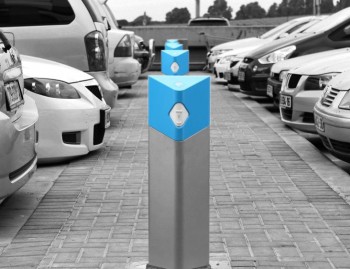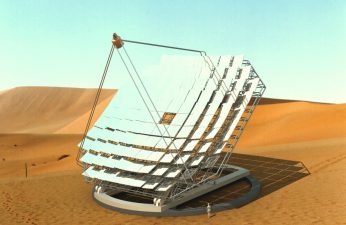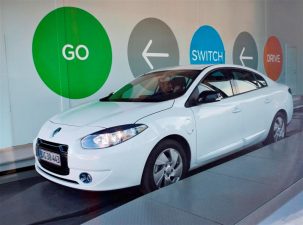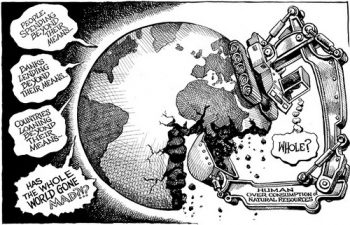 Gasoline engines still work fine in cars; but what if they ran hair dryers or computers?
Gasoline engines still work fine in cars; but what if they ran hair dryers or computers?
Renault and Nissan, who happen to be partner auto companies, and who both are developing electric cars the Fluence and the Leaf, came out with the same clever advertisement: “What if everything we use ran on gas?” The ads are designed to coincide with the launching of both the Renault EV series of electric cars and Nissan’s Leaf, which is currently not scheduled to be introduced into the Middle East. The Renault Fluence electric model, with the help of the Better Place electric car technology company, is about to begin selling in Israel by late summer.
 Electric car charging posts will one day replace gas pumps
Electric car charging posts will one day replace gas pumps
The clever Nissan and Renault advertisements showed people what it would be like if items currently powered by electricity were powered by gasoline engines instead.
Watching people shaving or drying their hair with shavers or dryers powered by smoke belching gasoline motors, is enough to make you retch.
This also is true for large offices where all the computers, copy machines, telephones, and other appliances we take for granted as being powered by electricity were powered by fossil fuels instead. The noise and smoke is enough to drive you mad.
The clincher of these, of course is to tell people that since electricity plays such an important part of our lives to run all these appliances, why not use this clean quieter power source to power the cars we drive as well.
What the ad doesn’t tell you, however, is that fossil fuels, including natural gas still produces most electricity. Nuclear energy, another widely used electricity fuel source showed everyone its tragic consequences by the meltdown of three nuclear reactors at a nuclear power plant in Japan .
But this issue is not at the forefront of either Renault or Nissan’s efforts to put thousands of electric cars on the roads of Europe or Japan in the next few years. What produces that electricity will hopefully one day be coming from renewable energy sources, most likely the sun.
Watch the ads below. They are fun!
[youtube]http://www.youtube.com/watch?v=j0sCCJFkEbE[/youtube]
[youtube]http://www.youtube.com/watch?v=13l6UsQAe5M[/youtube]
Read more on Nissan and Renault electric cars:
Turning Another Leaf in the Middle East
The Middle East Will Remain Leaf-Less
Better Place EV’s Priced at $35,623 for Summer Delivery
GM’s Volt vs the Renault-Nissan Better Place Edition




A really weird picture of the use of applications! Despite the fact that most of the electricity is produced of fossile fules, the video shows that it´s totally absurd to shift the electricity production to every single device. The centralized production is much more efficient and ecological. And that´s the same fact with EVs! You reach an overall efficiency (from energy production to the wheel of the car) of over 30 %. ICE reach just about 10 %.
But I don´t think that there will just be pure EV, range extended vehicles like the volt or the Audi etron are very attractive as well. Therefore there will be a market share for both technologies. It´s just important to improve energy efficiency in the transportation section and both ways contribute the improvement!